Better late than never: Germany finally gets tough on Russia after dithering over Ukraine response
Germany faced criticism for its muddled stance on Russia and Ukraine but has responded to the invasion with strong words and even stronger action by halting the Nord Stream 2 pipeline, reports Erik Kirschbaum
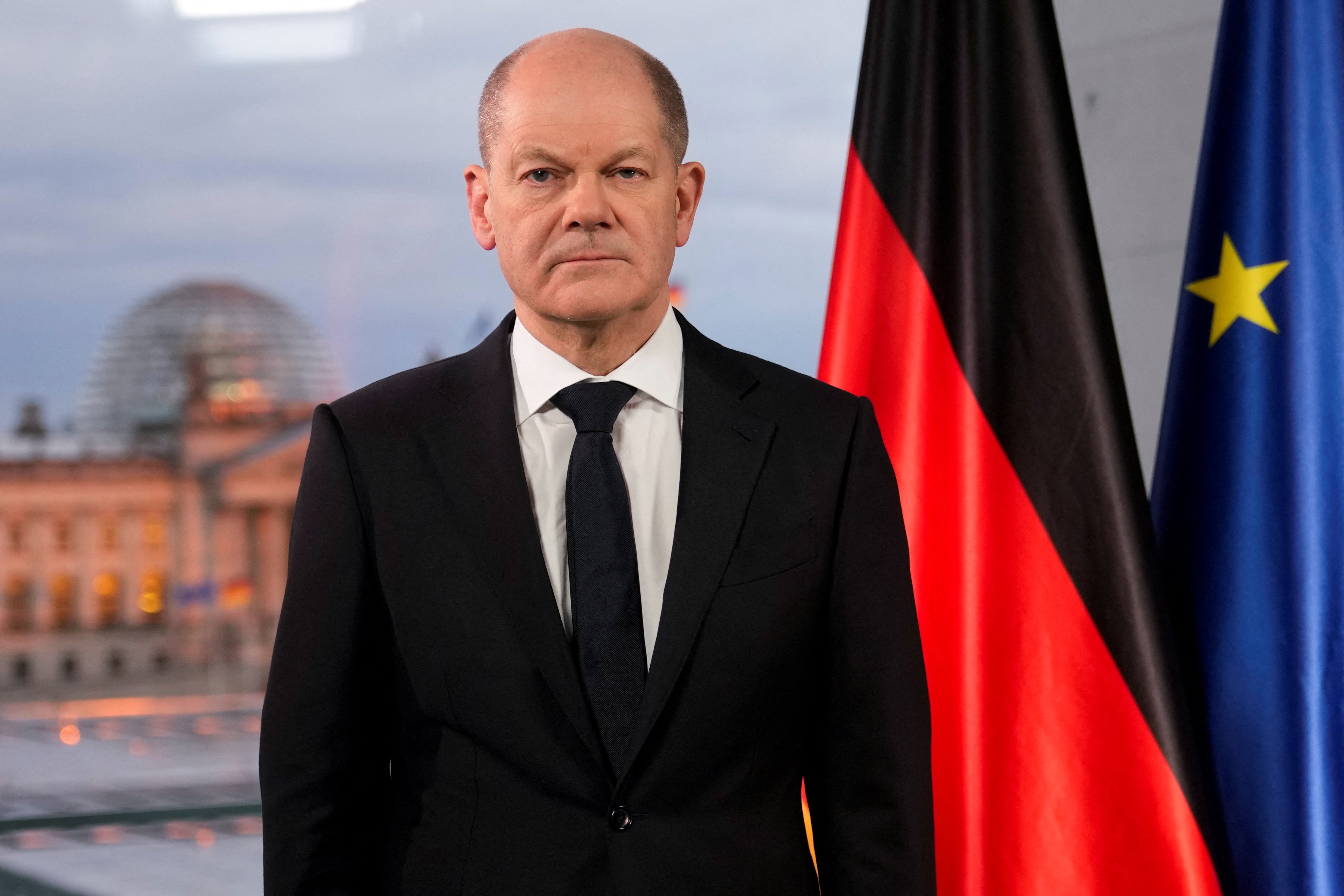
Following Russia’s invasion of Ukraine, German chancellor Olaf Scholz and his government have forcefully condemned Moscow and announced a series of sanctions – while bluntly warning one of the country’s most important energy suppliers that there would be a “bitter price” to pay.
But the newfound soul-searching and tough talk from Berlin that followed its rude awakening could not mask a reality dawning on Germans that Europe’s largest economy – with an unhealthy reliance on Russia for 57 per cent of its natural gas supplies – had long turned a blind eye to the mischief of Russian president Vladimir Putin, in part because of its energy dependency and its considerable business ties.
Shattered by Russia’s attack on Ukraine were widespread illusions in Germany about Mr Putin’s intentions and a belief that peace in Europe was only possible with Moscow as a partner.
Those views prevailed in Germany in recent decades thanks to its deeply pacifist streak as well as a sense of its own responsibility for the devastation of Russia caused by its armed forces during the Second World War. To compound matters, the three-party coalition that came to power in December is divided over foreign policy, and has largely floundered as regards the Ukraine crisis.
Nevertheless, Mr Scholz took strong action this week by halting certification of the Nord Stream 2 gas pipeline from Russia to Germany, and followed this up with a stern rebuke of his Russian counterpart after the invasion had begun.
“This is a dark day for Ukraine and Europe,” Mr Scholz said in Berlin on Thursday. “With his attack on Ukraine, Russian President Putin has once again blatantly violated international law while at the same time causing suffering and destruction in a neighbouring country.”
Mr Scholz, who had met Mr Putin in Moscow last week in a futile effort to preserve peace, added that Russia’s war that was shaking Germany out of its lethargy was endangering innocent lives and peace in Europe.
“There is no justification for any of this – this is Putin’s war,” Mr Scholz added. “It will soon become clear: Putin has made a grave mistake with his war. I call on Russia to stop the military incursion immediately, to put an end to the bloodshed and withdraw its troops completely from Ukraine.”
The near-universal condemnation of Russia in Berlin stood in contrast to the widespread and vocal pro-Russian sentiment before Thursday. The outcry in Germany was more intense than in 2014 after Russia annexed the Crimea peninsula.
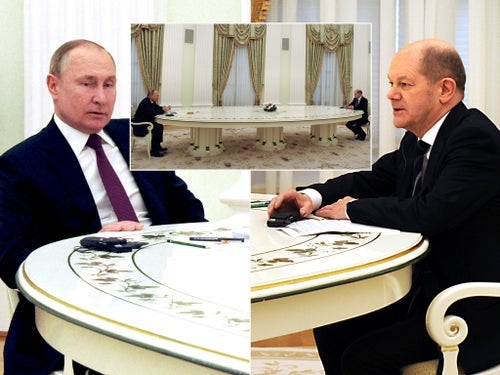
An opinion poll by the Forsa institute late last month, for instance, found that 90 per cent of Germans believe it is important to have good relations with Russia and 53 per cent said they understood Russia’s complaints about Nato’s expansion into eastern Europe. In formerly communist eastern Germany, where pro-Russia sentiment is especially strong, 43 per cent said that the United States was responsible for the east-west tensions over Ukraine and only 32 per cent said Russia was responsible.
Russia ranks as Germany’s 13th most important trading partner, with some €60bn in two-way trade. Russia is also by far Germany’s largest supplier of natural gas and oil.
Amid packages of sanctions from the UK, US and EU among others, Berlin this week took one of the strongest steps yet with its Nord Stream 2 decision.
However, Germany was criticised on Thursday after it said that cutting off Russia from the Swift global interbank payment system should not be part of the second EU sanctions package.
You can’t play softball with Putin – you have to be ready to play hardball
The EU’s latest measures include a freeze on assets and a block on Russian banks’ access to European financial markets, but there is an exemption for energy exports.
The German finance minister, Christian Lindner, admitted Berlin refused to go further because of “a high risk that Germany will no longer be supplied with gas or raw materials”.
Former European Council president Donald Tusk said on Friday that some EU governments had “disgraced themselves” by refusing to impose the toughest possible sanctions on Russia, naming Germany, Hungary and Italy.
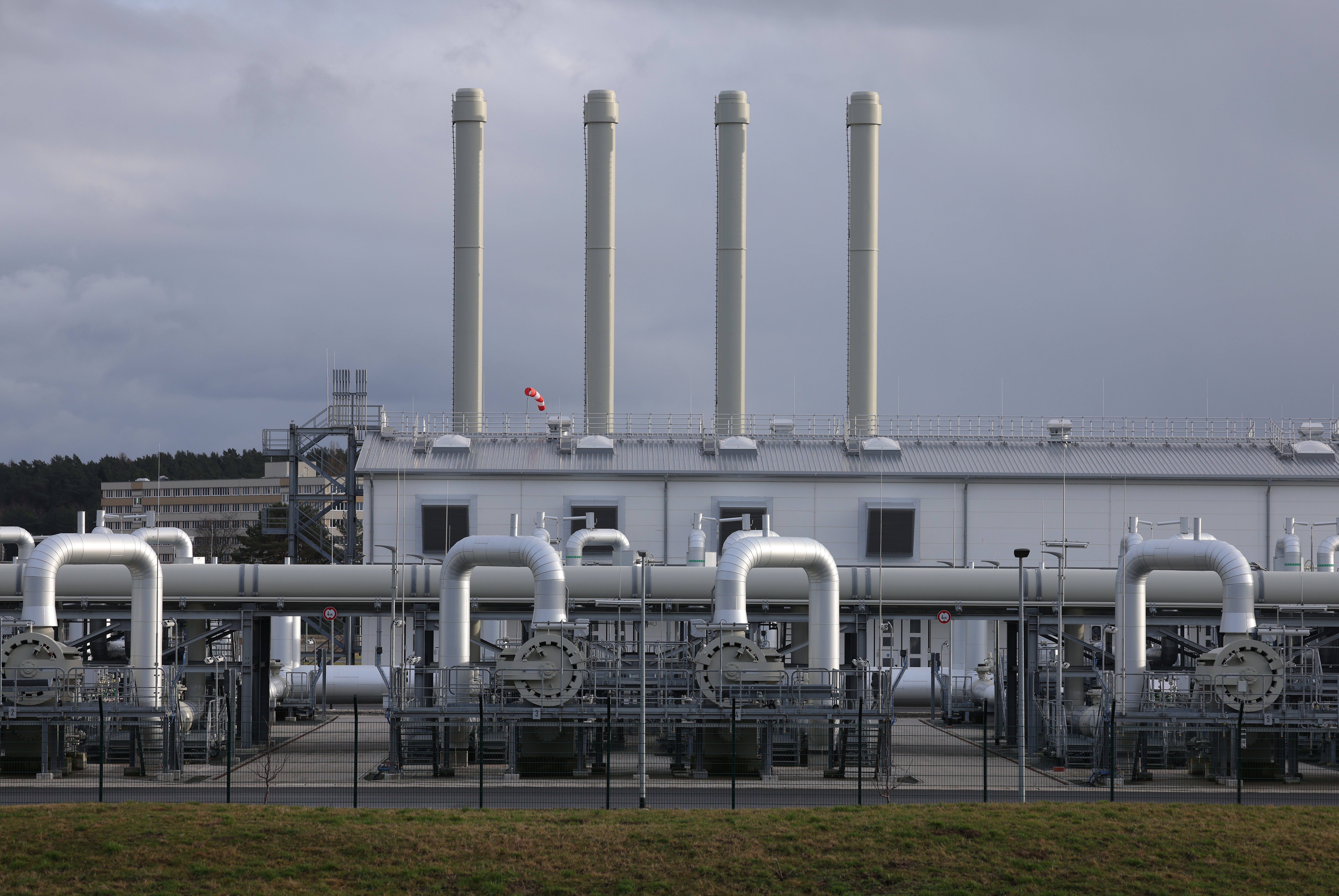
Peter Beyer, the German government’s transatlantic coordinator, said Berlin was right to finally stop Nord Stream 2, a project that was severely weakening Ukraine’s economy as a traditional transit country for Russian gas, and greatly angered the United States as well as much of Europe.
However, he said that Germany hadn’t taken “this guy [Mr Putin)] seriously enough”.
“Of course it’s important to keep open lines of communication with Putin and the Russian government,” he said in an interview with The Independent. “But you can’t play softball with him. You have to be ready to play hardball. We didn’t understand that for a long time. Too many Germans ignored that for too long that the Kremlin only understands hardball.”
Christoph Heusgen, the head of the Munich Security Conference and former chancellor Angela Merkel’s foreign policy adviser, told Bild newspaper that Germany was “too gullible”.
“We always underestimated Putin’s brutality and ruthlessness,” he said.
We did not prepare anything after Georgia, Crimea and Donbass … that would have really deterred Putin
Mr Heusgen added that Germany too long overlooked abominable actions such as the poisoning of Russian opposition leader Alexei Navalny, the daytime state-sponsored assassination in Berlin’s Tiergarten park of a Chechen dissident, Russia’s support of the Assad government in Syria and Russian hackers breaking into the German parliament’s computer system.
“If they poison their opposition leader, if they kill an opponent in Berlin right under our noses, if they support the mass murderer Assad in Syria and let Russian mercenaries do their mischief in Africa, they’ll also attack their neighbour,” Mr Heusgen added. “Being nice in response to all that is simply wrong.”
Germany was criticised and even derided last month when, having refused to send weapons to Ukraine, it instead offered to send 5,000 helmets.
“Five thousand helmets are an absolute joke,” Kyiv’s mayor, Vitali Klitschko, said in response. “What will Germany send next? Pillows?”
Hundreds of German soldiers have been sent to Lithuania, which borders Russia-aligned Belarus, as part of the Nato response – and the government is considering deploying more – but Ukraine has expressed frustration at Berlin’s lack of action.
Reflecting the country’s ambivalence about Crimea and Russian aggression, Germany has failed to even come close to meeting a promise it made to its Nato allies in 2014 to raise its defence spending towards 2 per cent of its gross domestic product by 2024.
The chief of staff of Germany’s ground forces, Lt General Alfons Mais, admitted Germany’s armed forces were totally unprepared for war.
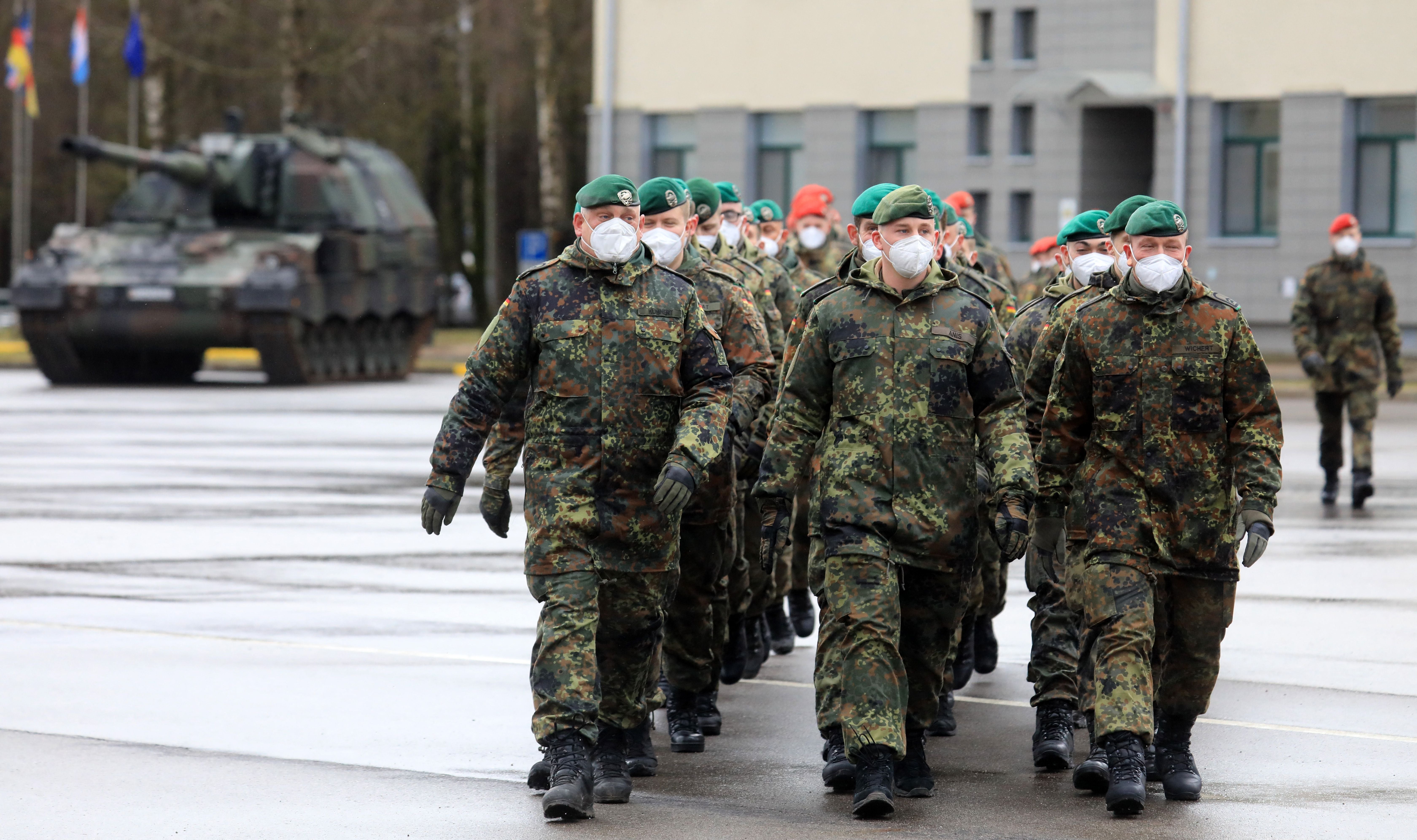
“I never thought we would have to live through another war,” he said. “And the Bundeswehr, the ground forces I command, are more or less emptied out. The [military] options we could offer to our political leaders to support the alliance are extremely limited.”
Germany spends 1.4 per cent of its GDP on defence, and many leaders in Mr Scholz’s centre-left Social Democrats (SPD) have publicly questioned the need to spend so much on it. Some have even called for the United States to remove nuclear weapons that are believed to be stationed at German Nato bases.
Annegret Kramp-Karrenbauer, Germany’s former defence minister and former leader of the Christian Democratic Union (CDU), said Germany had forgotten the warnings of previous Cold War-era chancellors Helmut Schmidt and Helmut Kohl. “It’s right to negotiate with adversaries but you have to be so strong militarily so that not negotiating can’t be an option for either side,” she said.
“I’m so angry at us because we have failed historically,” she said on Twitter on Thursday.
“We did not prepare anything after Georgia, Crimea and Donbass … that would have really deterred Putin.”
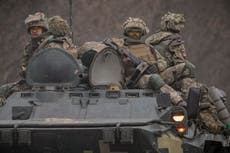





Join our commenting forum
Join thought-provoking conversations, follow other Independent readers and see their replies
22Comments